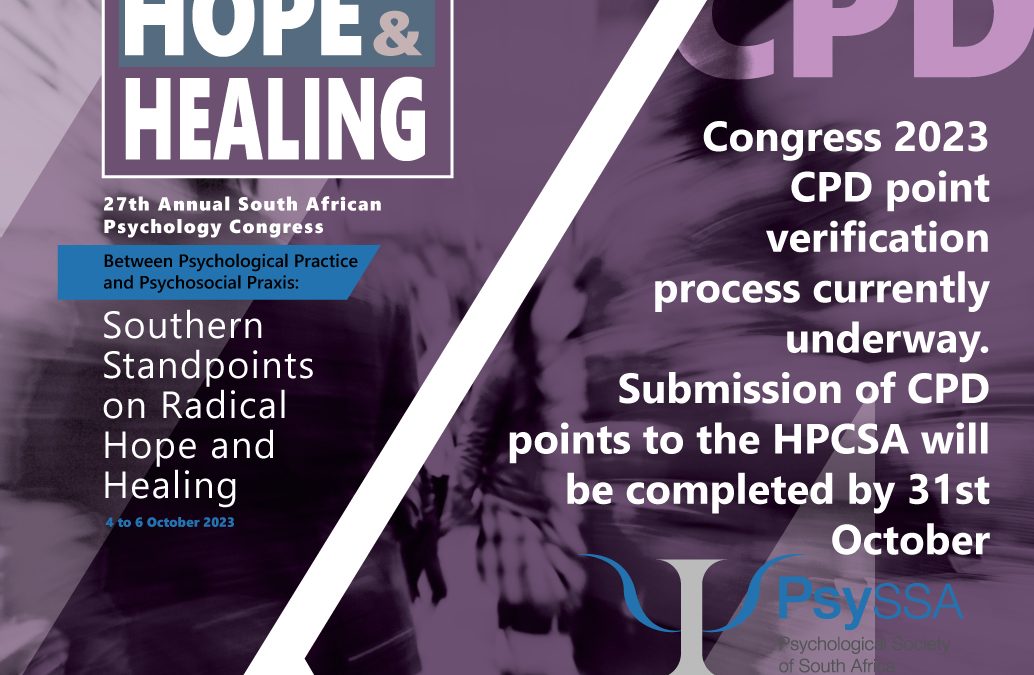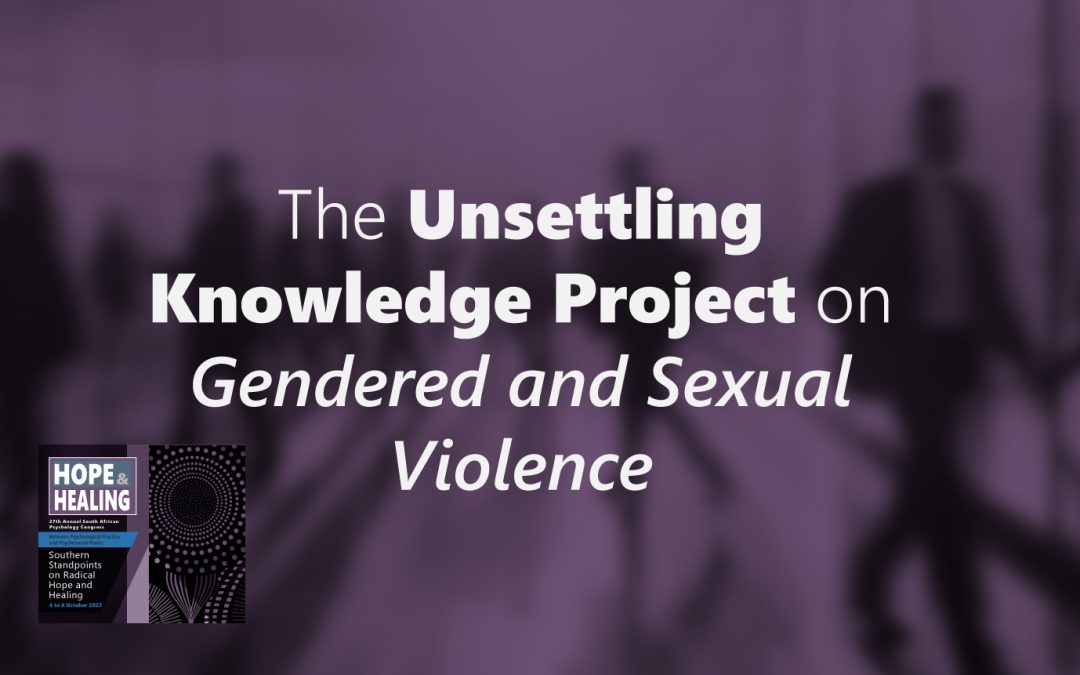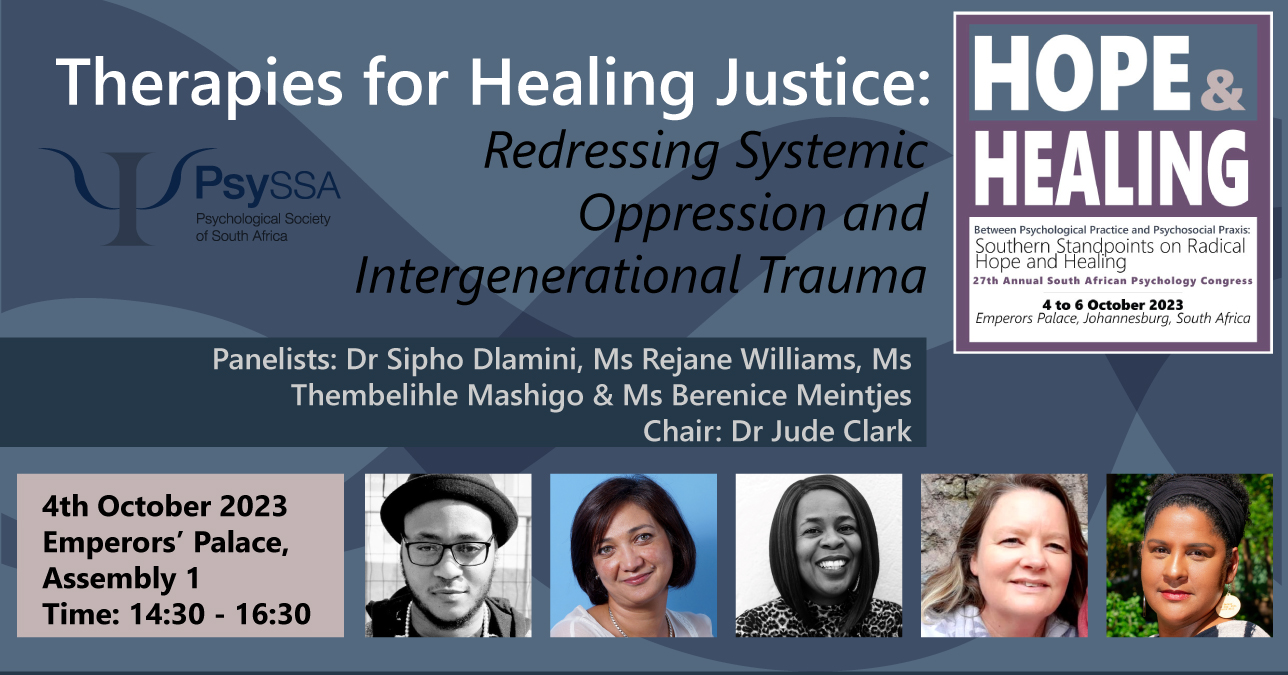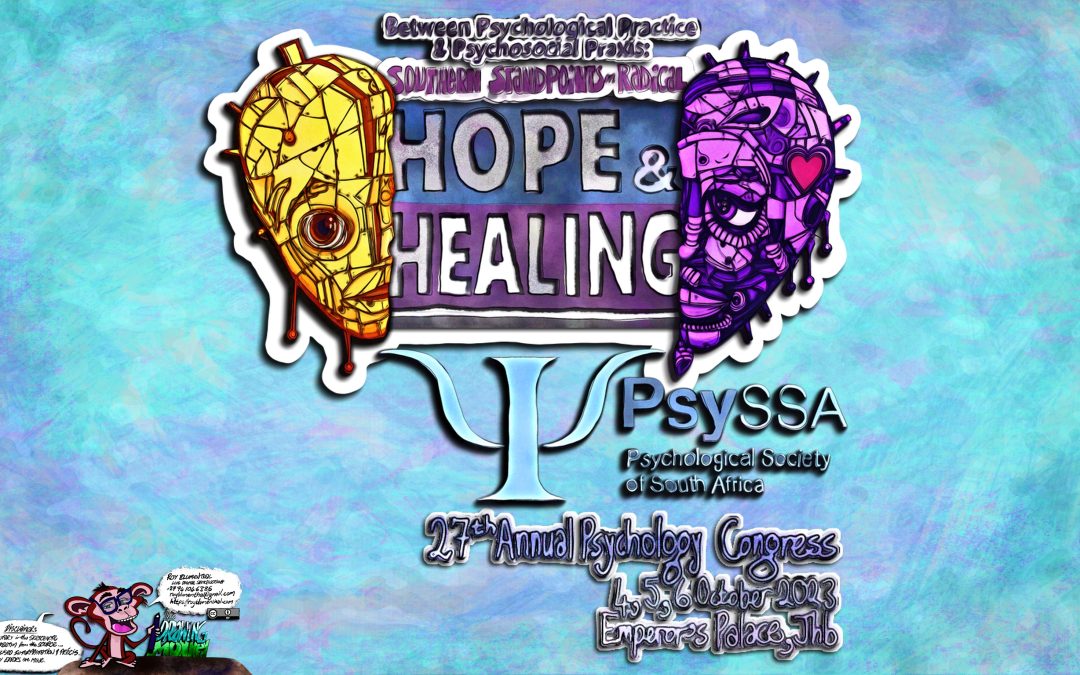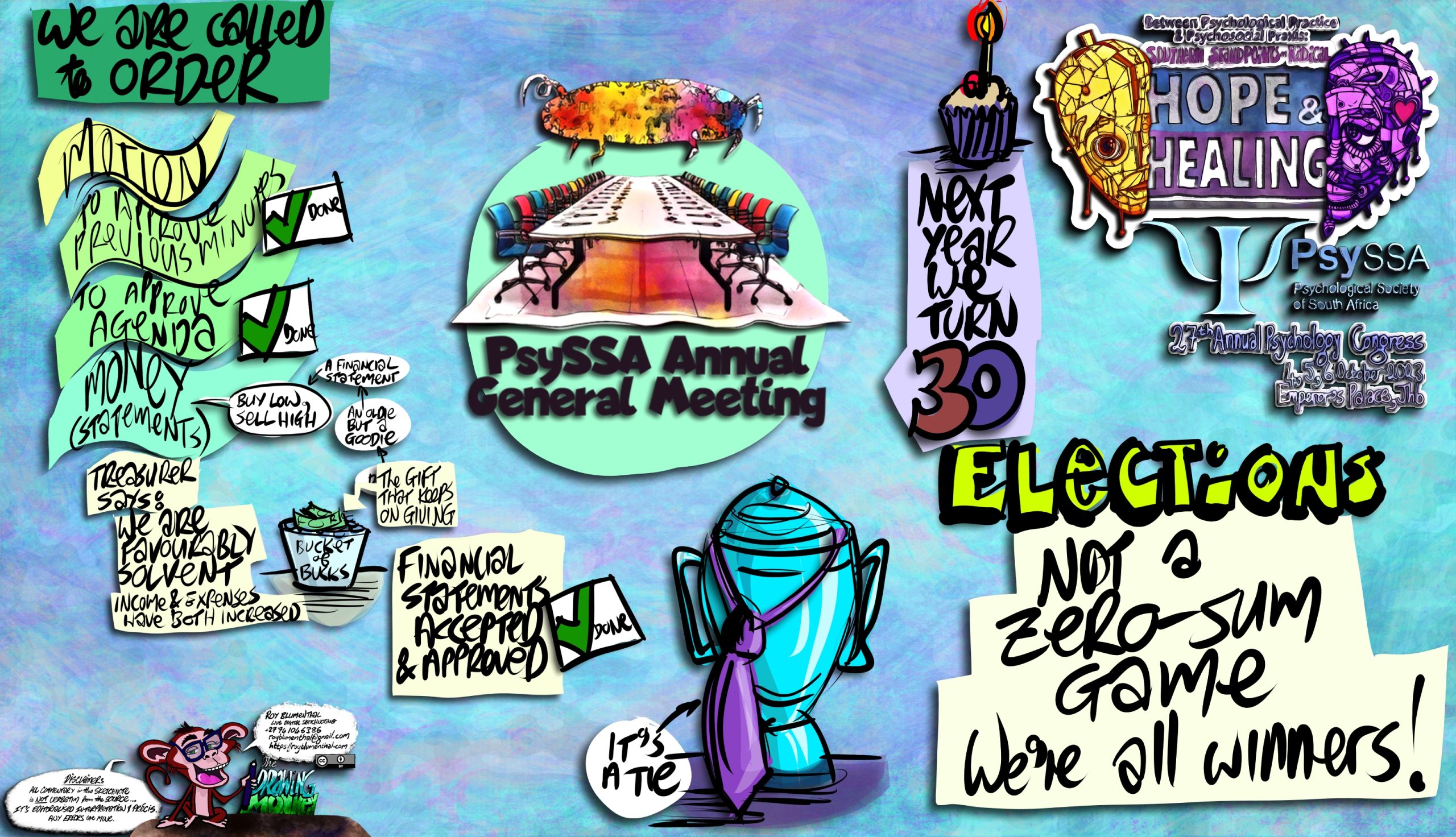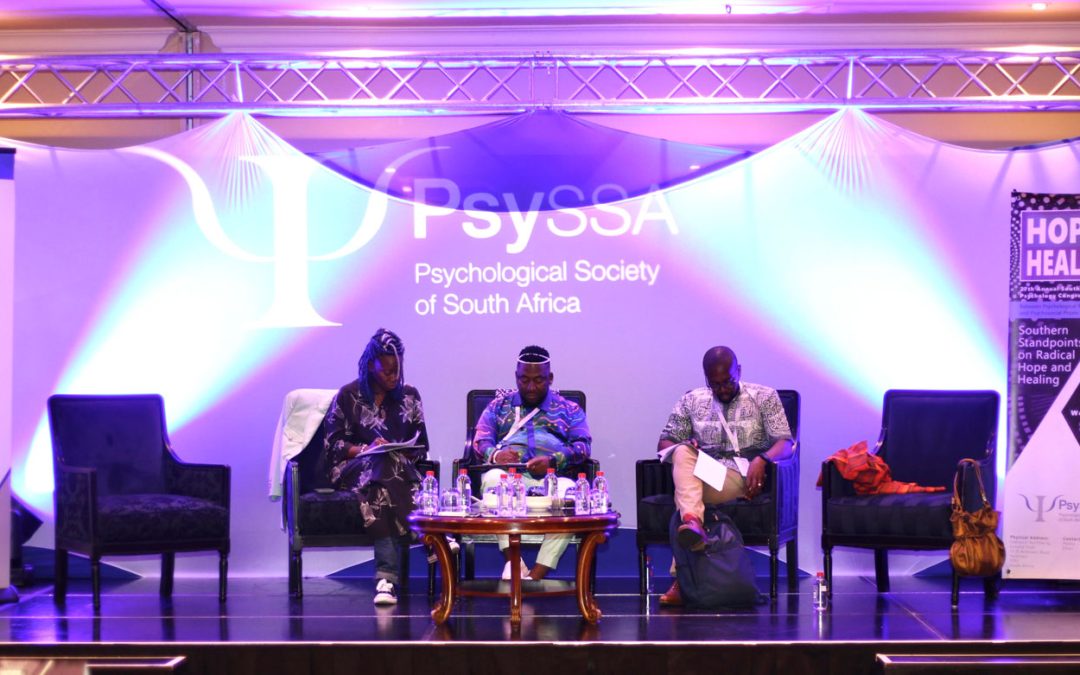Reflecting on the 27th Annual Psychology Congress: Volunteers Share Their Experiences

The students’ reflections on the PsySSA Congress collectively convey a sense of profound personal and professional growth. They express their aspirations to engage with psychologists and academics, highlighting the conference as a means to actualize these dreams. Volunteering experiences were described as eye-opening, facilitating self-discovery and the challenge of holding spaces with admired professionals. The Congress provided a platform for diverse learning, covering topics such as sexuality, the National Senior Certificate, and psychology’s various facets, fostering intrigue and a commitment to continuous learning. Networking with seasoned professionals and fellow enthusiasts opened doors for mentorship and future collaborations, solidifying their passion for psychology. The well-organized and inclusive nature of the event, coupled with its emphasis on respectful dialogue, contributed to a welcoming atmosphere where knowledge was freely shared. The students look forward to future engagements, including volunteering, and express gratitude for the enriching experience, inspiring them to pursue their psychology journeys with confidence and enthusiasm.
Muhammad Coovadia: I’ve always dreamt of sitting in a room of psychologists and engaging with academics in the field. The PsySSA conference allowed me to actualise this dream, a facet I am extremely grateful for. I look forward to future engagements and encourage fellow students to volunteer.
Makungu Murhombo: I would say my volunteering experience has been eye-opening. I’m learning more about myself. It’s exceptionally challenging to help hold a space with many people I admire in the profession.
Vuyokazi January: My reflection on the 27th PsySSA Congress includes a learning curve particularly, in sessions like Sex and Sexualities in Bodies with Different Abilities and National Senior Certificate Results: Fact or Deception. Furthermore, I was intrigued by interacting with various psychological professionals and working in a group setting. In addition, the Congress was well-planned and organized. Finally, this was a nice experience for me, and I look forward to learning more.
Naledi Ndiweni: I feel extremely privileged to have been a part of the PsySSA Congress Volunteers this year. Not only did I have the opportunity to meet and network with psychologists and professionals in the field I want to go into, but I’ve also been part of an amazing team that worked hard to put the event together.
Tanya Meyer: One highlight for me was attending presentations based on journal articles by the authors themselves. The thought-provoking questions asked during these sessions made me appreciate the expertise of those in the field. Witnessing the depth of knowledge and experience among the attendees was eye-opening. I also realized that while some concepts may seem promising on paper, their practical application is not always straightforward.
Alexia Houndalas: Volunteering at the 27th Annual PsySSA Congress was an incredibly insightful experience that enhanced my personal and professional development. I look forward to attending the conference next year as a volunteer and delegate; with the hope of publishing and presenting my research.
Nobanzi Dlamini: This year’s theme was very educational, insightful and informative. Meeting the many different Professionals and Academics and further listening to the various topics presented in the field of Psychology has been such an invaluable experience. I am extremely grateful to have been part of this great Congress and look forward to many more to come. Thank you to PsySSA for this wonderful event.
Ané Van Zyl: I had yet another great experience at the congress and will come back next year! I loved how the session’s topics were insightful and even sparked interest within me that I had been unsure of. I had many meaningful interactions with delegates, and networking opportunities were prevalent during the conference. I had a wonderful experience working with the other PsySSA volunteers and would love to get this opportunity next year!
Shazia Mia: Attending the PSYSSA Annual Congress as a volunteer was an invaluable experience for me as an Honours Student in Psychology. It provided a unique opportunity to immerse myself in the professional world, engaging with experts and fellow enthusiasts. Assisting in various aspects of the event allowed me to witness firsthand the inner workings of such gatherings, enhancing my understanding of the field. Moreover, networking with established professionals opened doors for potential mentorship and future collaborations. Overall, this experience has fortified my passion for psychology and bolstered my confidence in pursuing further studies and a career in this dynamic field.
Jordan Masters: We were allocated venues and knew exactly what we needed to do so that everything ran smoothly. It was awesome to be able to listen in on some of the presentations and discussions. I was even able to chat with some delegates and they emailed me their dissertations! It was overall an amazing experience.
Boitumelo Motaung: Working with PsySSA was a great experience as I got to network with people I see myself being one day. Learning about different sections of psychology was also interesting as I was informed about only one scope. The experience was great, and that’s why I want to volunteer again next year.
Jordan Spence: The Congress was well-organised, which made my role as a volunteer enjoyable. The attention to detail, from registration to session management, was smooth and contributed to the overall success of the event. I was particularly impressed by the quality and diversity of the sessions and presentations. The wide range of topics covered was not only informative but also engaging. It was clear that the organisers put a lot of effort into curating a programme that catered to the diverse interests of delegates. Furthermore, the emphasis on inclusivity and respectful dialogue created a welcoming atmosphere for all participants. This focus on fostering an environment where ideas could be freely shared and discussed was one of the highlights of the congress. The networking opportunities were also a significant highlight for me. Connecting with professionals and peers in the field was invaluable, and I gained valuable insights and contacts that will undoubtedly benefit my future involvement in the field. I want to express my gratitude for allowing me to be a part of this event. It was a genuinely enriching experience, and I’m eager to continue supporting PsySSA’s endeavours in any way I can. Thank you once again, and I look forward to the possibility of volunteering in the future.
Tarika Rajcoomar: I had an overall positive experience volunteering at the PsySSA Congress. It was a great learning experience. I was able to attend round tables and symposiums about topics that greatly interest me. I was also able to meet some of the people generating massive change in the understanding of gender and sexuality (both of which are topics that I’m very passionate about).
Zenzele Murhombo: PsySSA was an emotional experience for me. Being around so many people I aspire to be like was overwhelming and a blessing at the same time. I got an opportunity to approach my role models and receive guidance moving forward in my journey to becoming a registered counsellor. When feeling lost in your Psychology journey, PsySSA is the key to doors you never knew existed.
Olivia Brandao: As a first-time volunteer at the PsySSA Congress, I am grateful to have been allowed to network with and meet so many diverse, intelligent, and interesting professionals in the mental health field. It was an eye-opening, educative experience listening to each of the presentations and learning about the work being done in the field. I felt incredibly motivated and inspired over these past few days of Congress to continue pursuing my passion for psychology and the social sciences. The Society and its events are definitely something that I am proud to have been and be a part of
Lorraine Nkwinika: I am grateful for the experience and exposure PsySSA has given me. The whole experience has been so challenging yet worth learning and positivity as a student to be inspired that you can make it, as being surrounded by all the delegates of different statuses really inspired me.
Maryam Gangat: Reflecting on an amazing experience as the Volunteer Coordinator at PsySSA 2023 Congress. Collaborating with such dedicated volunteers and the passionate PsySSA community was truly inspiring. Teamwork truly makes a difference! Excited to announce that I’ll be coordinating volunteers again for PsySSA’s monumental 30th Congress next year!

